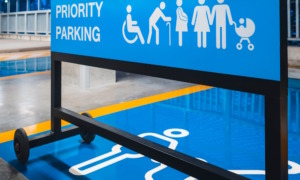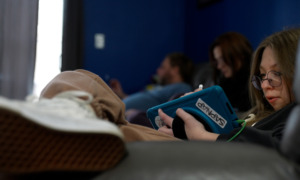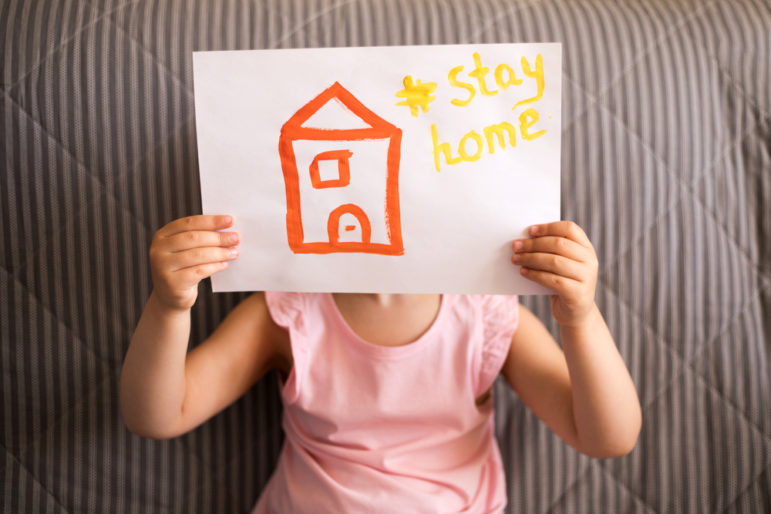
ezhenaphoto/Shutterstock
.
As the COVID-19 pandemic continues to spread across the globe, young people with disabilities are facing unique challenges. The threat of contracting the virus has led to schools and businesses closing, citizens being told to stay home and shelter in place and hospitals being overrun.
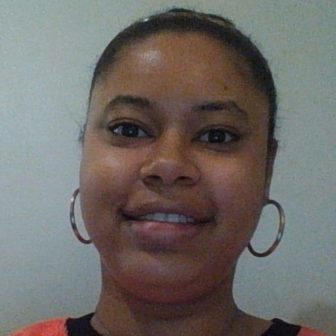
Deandra Mouzon
As people find ways to cope with the “new normal,” I have been contacting young people with disabilities and their families to try to understand what life is like for them in this difficult time.
What I found is that although they are keeping up with schoolwork and daily activities, some of these youths do not understand why they cannot go to school and see their friends as they normally would. It’s hard enough for an able-bodied adult to follow the news about the virus, but for someone who has a hard time learning and communicating it can be an overwhelming idea. Two young men, Zyon Cooks and Landon Melton, are handling things the best way they can.
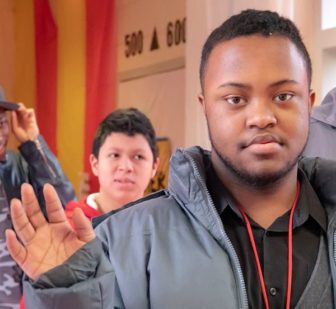
Family photo
Zyon Cooks
A friend of mine in Smyrna, Ga., is the mother of Zyon, 18, who has Down Syndrome. Over the last few weeks Yvonne has been homeschooling him. Their daily routine starts in the morning when they read the Bible together and do affirmations. Throughout the day, in between schoolwork and studying, they also exercise and cook together.
Although he is adapting well and enjoying the extra time at home, he does miss going to school and does not fully understand why he has to stay home. When the quarantine started, Yvonne explained to Zyon that people can get sick if they go outside around others. Later in the week, he said, “But mom, I’m not sick,” which Yvonne took to mean he missed his friends and schoolmates.
This interaction made me think about the challenges families face when trying to help their children understand what the coronavirus is and why it is dangerous. It also reminded me of a piece I read by the Child Mind Institute about how to explain the virus to children.
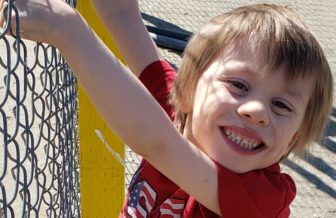
Family photo
Landon Melton
While doing research, I found Kourtney Melton and her son Landon Melton who live in Juneau, Alaska. Landon is 6 and has autism and behavioral problems. Right before the outbreak, Landon, his mother and his three siblings became homeless and then a short time later Kourtney also lost her job. Although their living conditions are uncertain, she still makes sure she helps Landon with his schoolwork, practicing numbers and sightreading each day.
Sometimes the family goes on short walks to get fresh air while maintaining a social distance from others. Normally at school, where he has an individualized education plan, Landon works with a para educator 100% of the time. His mother said she is keeping things as normal as possible for him.
Like Zyon, Landon has only a very basic understanding of what is going on regarding the virus. His mother told him there is stuff in the air that could make them sick and that is why they have to stay home. He is also very anxious to go back to school.
This new way of life is a change for all of us. What is arguably most scary is not knowing when it will be over. Like everyone else, young people with disabilities are adapting to the changes and coping with the help of their families and communities. I encourage you all to reach out to your friends and family who have children with disabilities. I know they could use the encouragement in these rough times.
If you would like to contribute to this column and share your story about life during quarantine with a disabled youth, email me at Deandra@csjournalism.org.
Deandra Mouzon is a Georgia-based journalist who received a B.A. in journalism from CUNY’s York College. Currently she is working on a publication about youth with disabilities.


